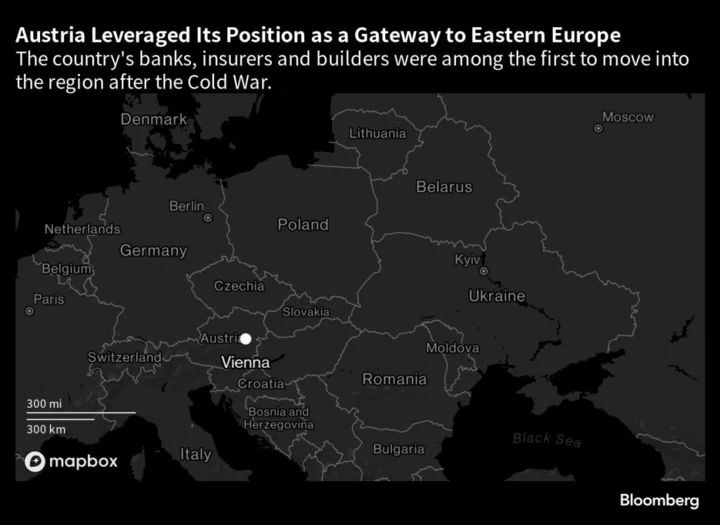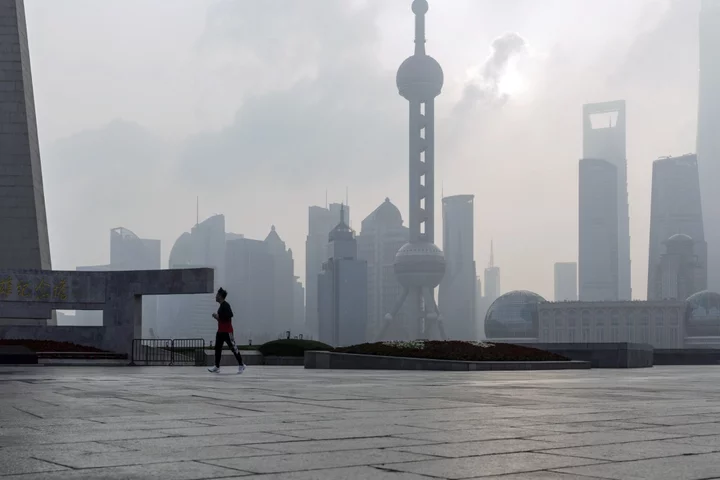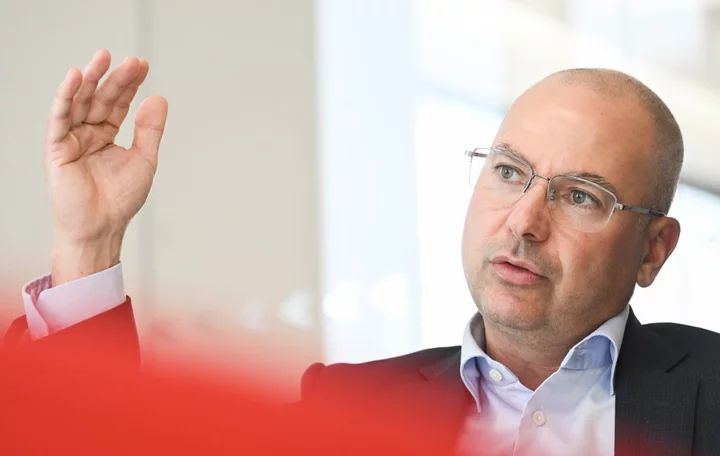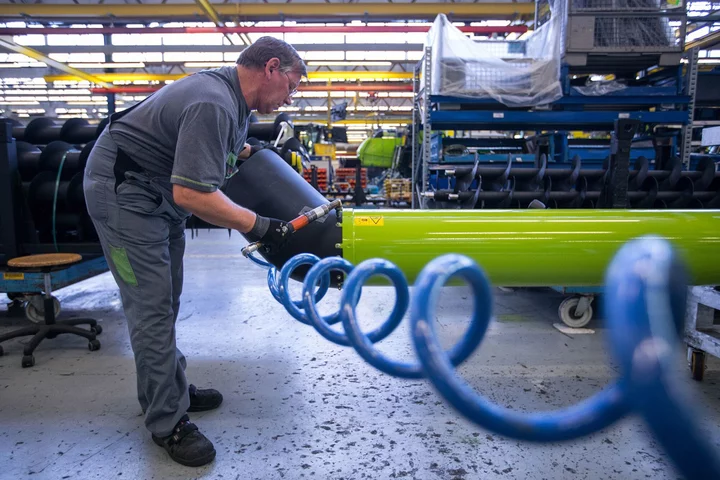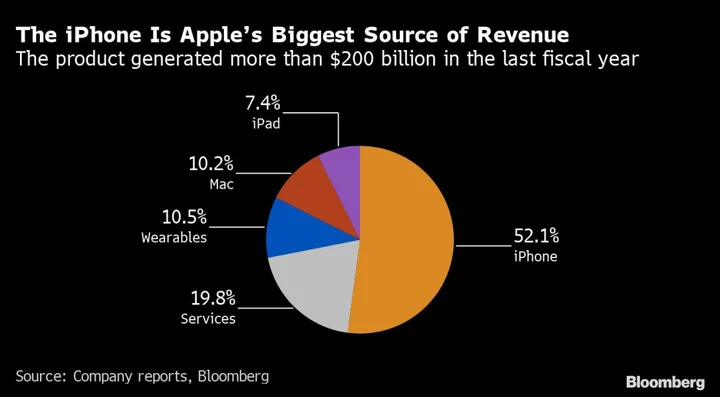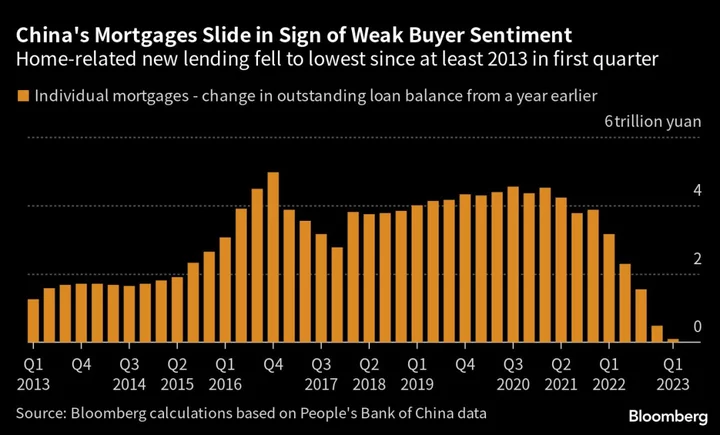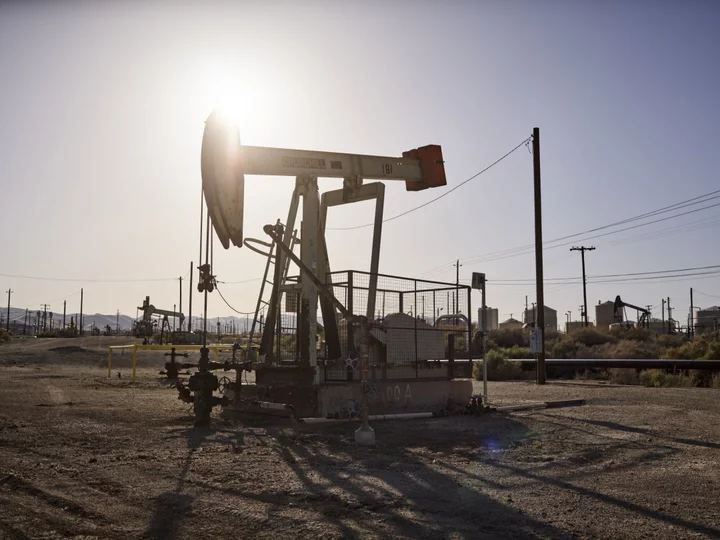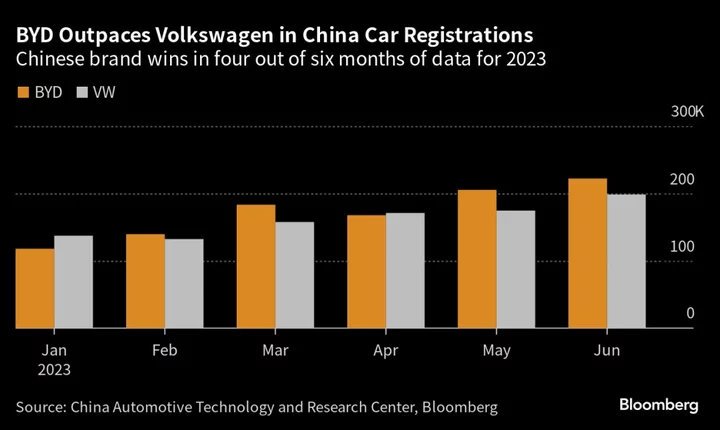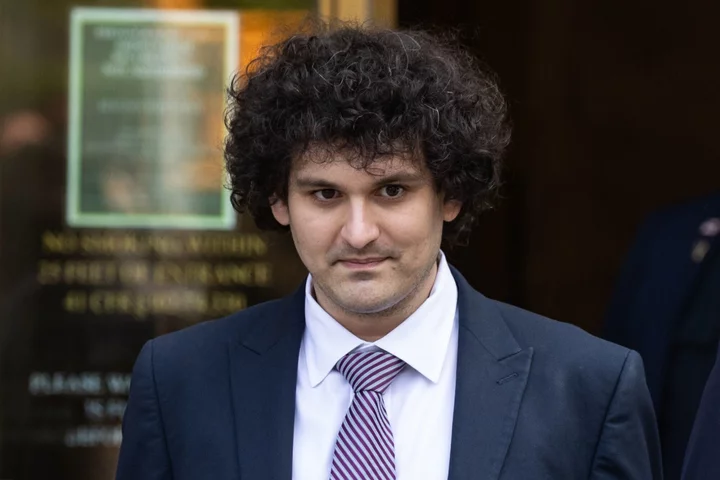Waagner-Biro Bridge Systems makes modular steel overpasses that can span rivers and valleys in conflict zones. As Ukraine seeks help to restore infrastructure, the equipment might look like a perfect fit.
Even as Russia’s war shows no signs of abating, Ukraine’s allies are already looking at how to rebuild and Austria wants to be front and center of that effort. The Vienna-based company, though, hasn’t delivered a single bridge and Chief Executive Officer Richard Kerschbaumer said he doesn’t expect that to change this year.
Austria has profited from being a gateway to the east, but companies like Waagner-Biro are now hindered by decades of the country’s close ties with Russia and a political leadership that’s caught between promoting commercial interests and the country’s military neutrality.
Ukraine expects handouts in exchange for its military sacrifice, but someone needs to pay for them, said Kerschbaumer. “Our hope is that not only Austria, but also Europe or the World Bank will release funding,” he said.
Among the largest winners from the fall of communism in Eastern Europe, Austrian companies have reaped billions of euros each year from a web of subsidiaries spanning Russia to the Balkans. Ties to the region going back to the Habsburg Empire allowed Austrians to be among the first investors in economies looking to move on from their socialist past.
But proximity and history are not enough in the latest conflict, and Austria appears less able to leverage its geography in a way it used to as the European Union and other donors come up with billions of euros for Ukraine.
Politicians have been more bullish. Waagner-Biro was part of the Austrian delegation, along with companies such as construction giant Strabag, taking part in June’s Ukraine Recovery Conference in London. Foreign Minister Alexander Schallenberg, who represented Austria at the meeting, said the heavy commercial presence was a “political signal of hope.”
After the Cold War, Austrian banks, insurers and builders were among the first to move into Eastern Europe, investing heavily in ex-Soviet states and satellites, including Ukraine, and establishing themselves as dominant market players. Austria’s capital, Vienna, is closer to Ukraine’s border than Switzerland to the west.
“The Austrian state is known for its close ties,” researchers at the Vienna-based think tank Agenda Austria wrote in response to questions. Austria’s “companies have a strategic advantage” and “should benefit greatly” from the reconstruction of Ukraine, whenever it happens.
They will be competing, though, with firms from countries like France, Germany and the UK that have been directly involved in arming Ukraine since Russia’s invasion in February last year.
Officials across the political spectrum say Austria can’t legally provide the artillery and guns Ukraine needs to defend against invasion. Instead, the nation is helping in other ways, the officials argue. It’s taken in almost 100,000 Ukrainian refugees while the Foreign Ministry says it’s spent more than €150 million ($163 million) on direct support.
“It’s our responsibility to help Ukraine in the immediate term to reconstruct, especially infrastructure and housing,” Karoline Edtstadler, Austria’s minister for the EU and constitution, said at a conference on Aug. 29. “That has already been started and we need to continue do that.”
But the country is still the target of criticism for failing to severe economic ties with Russia. Raiffeisen Bank International AG, for example, runs the largest foreign-owned banks in both Russia and Ukraine. It has more than €3 billion of profits stuck in Moscow, accumulated over a lucrative 18 months trading the ruble and withheld due to capital controls.
The bank’s management has been gradually winding down its business in Russia while stalling on a review of options to sell or spin off the unit. Raiffeisen CEO Johann Strobl said this week he’s committed to getting rid of the Russian unit and blamed the delay on the regulatory authorities and the legal complexity of sanctions. “It’s not an excuse, it’s reality,” he told the same conference attended by Edtstadler.
Then there’s the thorny issue of energy supplies. Austria has also been kicking the can on efforts to cut its reliance on Russian gas imports. OMV AG continues to buy Russian natural gas because it’s locked into a contract running until 2040. It covers more than half of Austrian gas demand via pipelines that cross Ukraine.
That has left the government in Vienna with an awkward balancing act. For Energy Minister Leonore Gewessler, the dilemma feeds into a broader discussion around Austria’s energy supplies. Gewessler, a Green Party politician, was dispatched to Kyiv earlier this year to sign deals Ukraine said will advance a long history of energy cooperation between the two countries.
“There are currently a lot of conversations going on,” said Gewessler, who is also part of a special commission studying Austria’s security strategy to incorporate energy supplies. “The return of conventional war in Europe necessitates that we rethink our security policy in broader terms.”
That’s opened the door for RAG Austria AG, one of Europe’s biggest gas-depot operators. The company is backing the so-called H2EU+Store project, which aims to build a hydrogen supply chain that connects Ukrainian renewable energy sources with pipelines feeding EU industry with clean-burning fuel. “Ukraine will play a fundamental role in the future,” the company said in a response to questions.
Companies like RAG and Waagner-Biro specializing in niche industrial products form the backbone of Austria’s economy. But others remain more cautious.
Strabag, whose shareholders include sanctioned Russian oligarch Oleg Deripaska, is awaiting improved security before potentially returning to Ukraine. Verbund AG, the state-controlled hydropower giant and most-valuable Austrian company, said that while “Ukraine shows potential for renewables and hydrogen” it needs “peace and stable regulatory and political conditions.”
For Waagner-Biro, it’s also a case of waiting. Its 2-by-3-meter (7 by 10 feet) steel building blocks can be linked together within days to replace bridges that have been taken out by Russian forces. The company even started some production at a site in western Ukraine.
“Demand is huge,” said Kerschbaumer. “It is big enough for all competitors. There will be plenty of work for decades.”
--With assistance from Daryna Krasnolutska.

